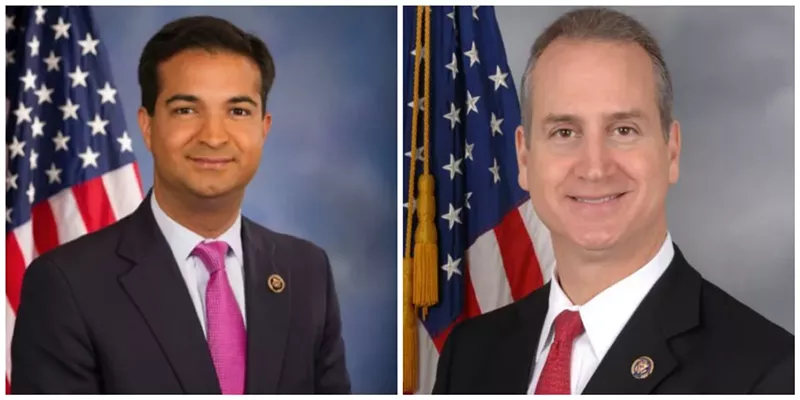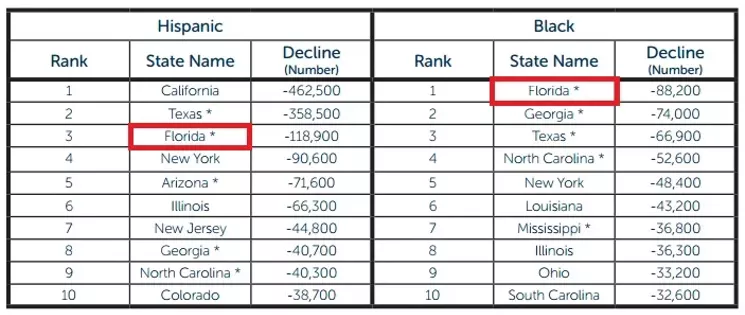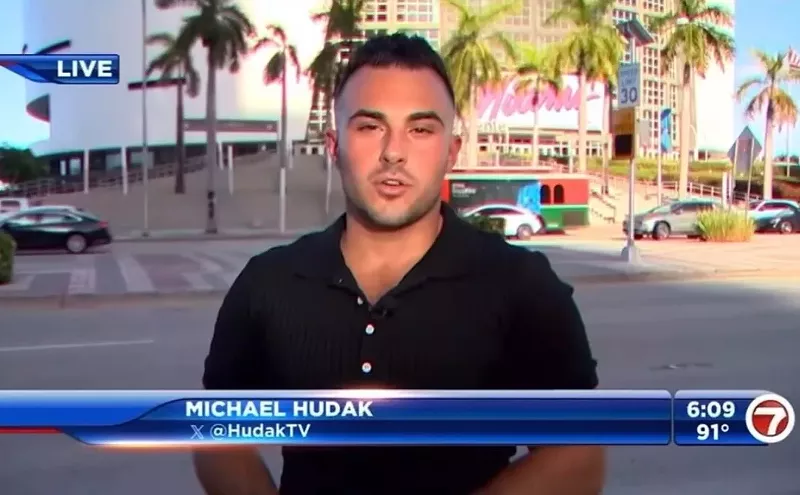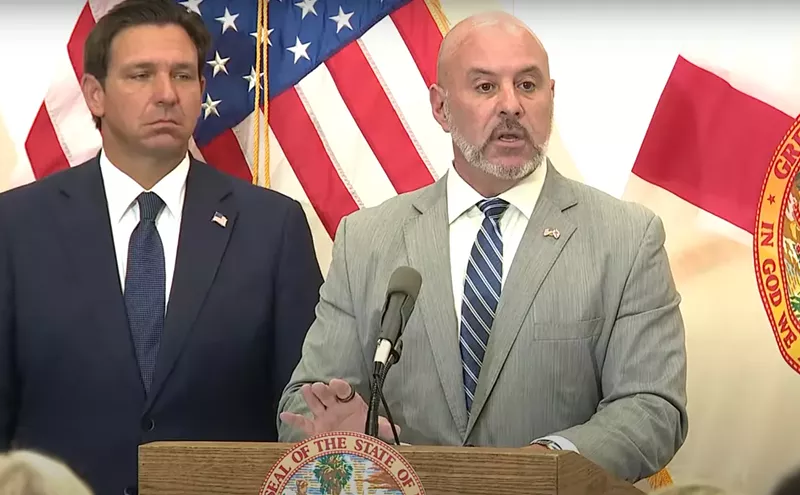On May 11, Miami Rep. Carlos Curbelo wrote an op-ed in the Miami Herald defending the fact that he voted for the American Health Care Act (AHCA), the GOP bill to repeal Obamacare. Throughout 716 condescending words, Curbelo avoided discussing the fact that the new AHCA takes an $880 billion shark bite out of Medicaid funding for the poor and needy.
It's pretty convenient Curbelo didn't mention those Medicaid cuts, because a new study released last week shows that the very funding reductions Curbelo and Miami Rep. Mario Diaz-Balart voted for would strip health coverage from 88,000 black children and 118,000 Hispanic children in Florida.
The report from Brandeis University's Institute for Child, Youth, and Family Policy directly counters claims from Republicans such as Florida's Marco Rubio, who said the 23 million people set to lose their insurance under the AHCA is just a "small percentage" of the population.
"In sum, this analysis illustrates that a change in federal Medicaid eligibility minimums back to pre-ACA levels (from the current effective threshold of 138 percent FPL to 100 percent FPL) is not a marginal change that affects only a few children," the report says. "It is, rather, a far reaching proposed change in which nearly 5 million US school age children (close to 10 percent of the U.S. school age population) would lose federal eligibility (protection) for Medicaid benefits. The change would affect large numbers and shares of children of all races/ethnicities, and children of color would be disproportionately affected, potentially exacerbating (rather than helping to reverse) large and persistent child health inequities across the U.S."
More black children would lose their insurance in Florida than in any other state. The steep losses to Hispanic kids in the Sunshine State would be the nation's third-worst rate. (The study doesn't break down the number of white children set to lose coverage by state, but nationwide, 1.6 million white kids would lose coverage.)
And, as a reminder, repeated studies have shown that as access to health coverage declines, death tolls rise.
The proposed AHCA Medicaid cuts — nearly $1 trillion over a decade — come just as the Florida Legislature gutted a half-billion dollars from the state Medicaid funds paid out to local hospitals. More than half of all Medicaid enrollees nationwide are either children or elderly patients.
The new study is the latest to show that Curbelo and Diaz-Balart voted last month to basically maim and/or kill a ton of their constituents. Reports released earlier this year show that Miami contains the highest number of Obamacare exchange enrollees in the nation, when broken down by city, and Florida tops every state in the country.
In addition to crippling the already-hobbled Obamacare exchange plans (Monroe County currently offers only one plan on its exchange), the Medicaid "reforms" would largely come down hardest on disadvantaged children, the new study shows. Under the current AHCA proposal, the threshold for who qualifies for Medicaid would be lowered from families earning 138 percent of the federal poverty line down to 100 percent of the poverty rate, which is where the eligibility laws were set before Obamacare was passed. And hospital bills sure were great for Americans ten years ago.
Of course, it remains to be seen what, if anything, the U.S. Senate does to change the AHCA from the version that passed through the U.S. House of Representatives. It's likely the Senate will rewrite huge portions of the bill, given how deeply unpopular it has become. But in light of the fact that Rubio has so cavalierly dismissed the deaths this plan could allow, it's not unreasonable to worry about the bill becoming law in the not-so-distant future.

Audio By Carbonatix
[
{
"name": "GPT - Billboard - Slot Inline - Content - Labeled - No Desktop",
"component": "22004575",
"insertPoint": "2",
"requiredCountToDisplay": "2"
},{
"name": "STN Player - Float - Mobile Only ",
"component": "22595215",
"insertPoint": "2",
"requiredCountToDisplay": "2"
},{
"name": "Editor Picks",
"component": "17482312",
"insertPoint": "4",
"requiredCountToDisplay": "1"
},{
"name": "Inline Links",
"component": "18711090",
"insertPoint": "8th",
"startingPoint": 8,
"requiredCountToDisplay": "7",
"maxInsertions": 25
},{
"name": "GPT - 2x Rectangles Desktop, Tower on Mobile - Labeled",
"component": "23181625",
"insertPoint": "8th",
"startingPoint": 8,
"requiredCountToDisplay": "7",
"maxInsertions": 25
},{
"name": "Inline Links",
"component": "18711090",
"insertPoint": "8th",
"startingPoint": 12,
"requiredCountToDisplay": "11",
"maxInsertions": 25
},{
"name": "GPT - Leaderboard to Tower - Slot Auto-select - Labeled",
"component": "17720761",
"insertPoint": "8th",
"startingPoint": 12,
"requiredCountToDisplay": "11",
"maxInsertions": 25
}
]













